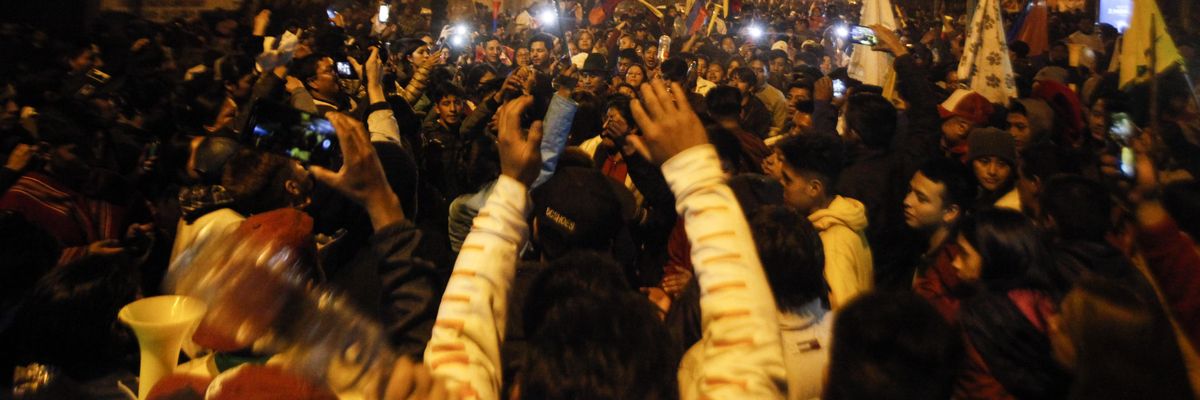Within this context, the political and social climate in Ecuador and Chile has been sparked by discontent and above all the havoc caused by these long-range monetarist policies, which promote public fund and welfare austerity for citizens in key areas such as education or health.
When talking about economic development, interpretations of governments become biased. Chile is a paradigmatic case in Latin America. ECLAC figures showed an encouraging growth rate of 1.5% in 2017 and 3.9% in 2018.
Also, in the Southern hemisphere but on a different continent is the parallel case of India, whose growth levels are applauded worldwide. However, when observing macroeconomic indicators human development indicators are often ignored, that is data referring to quality of life, access to health and education and generally the possibility of having a decent standard of living.
It is these indicators, not those of economic growth, where Chile and Ecuador, as well as other countries in the region, are failing their citizens, who are increasingly experiencing a significant deterioration in their daily living conditions.
In the case of Ecuador, which has a lower economic growth rate, 2.4% and 1.3% in 2017 and 2018 respectively, the problem of poor human development indices is reiterated here in a context where Lenis Moreno, the president, allows international finance organisations to dictate the Ecuadorian economy. The so-called "package" includes the elimination of fuel subsidies, makes working conditions less secure in return for increased entitlements in the business sector such as reimbursements of taxes for exporters or the abolition of taxes on technology imports.
The result of these economic policies has been increasing levels of poverty for broad sectors of the population, including indigenous groups stripped of land to deliver to mining companies.
However, against the onslaught of the state, workers, indigenous people and young people in Ecuador and Chile as well as Haiti, and less powerfully in Argentina resisted and reminded governments that they cannot continue to rule for elites. Their resistance movements are an affirmation of themselves as political actors and they demand that State incorporate them key actors in the political process.
